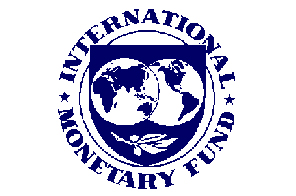India growth seen back on track: IMF
WASHINGTON: India's economic growth should be back on track by the next financial year even if the United States and other rich nations remain in the doldrums, the International Monetary Fund said Thursday.
Swift fiscal and monetary stimulus have already returned India's growth close to levels before the global financial crisis erupted, the IMF said.
"With India's long-term prospects remaining strong and private sector balance sheets sound, we expect growth to be back at potential in 2010/11 even if advanced economies grow below trend," the IMF said in a statement.
The IMF sees India, China and other developing nations playing an important role in driving global recovery while developed nations wrestle with high jobless rates and fragile financial systems.
India's economy should expand by 6.75 percent in the current financial year to March 2010 and growth should accelerate to eight percent in the financial year beginning in April, the IMF said.
The forecast was below Indian Finance Minister Pranab Mukherjee's own projection that the country's growth will be around 7.75 percent in the current financial year.
The IMF forecast was prepared after discussions between Indian authorities and the Fund's representatives that are held annually.
India's medium-term growth prospects remain bright, the IMF added, saying the country was able to weather the global crisis well thanks partly to its economy still mainly being domestically focused.
India's economy has been one of the first in the world to recover, the IMF noted.
The Fund congratulated Indian policymakers on their "sound macroeconomic policies and decisive actions leading to India's early and vigorous recovery from the global crisis".
It said conditions now are ripe in India for the central bank to start rolling back the aggressive monetary stance it adopted to help the economy ride out the global slump.
The IMF said it favoured a gradual approach to ending monetary stimulus "to ensure the recovery reaches its full potential".
Last week at a policy meeting, the central bank left borrowing rates at record lows to support continued expansion of Asia's third-largest economy.
But in a bid to keep a lid on resurgent inflation, the bank took a decisive first step towards exiting from its ultra-loose monetary stance by draining excess liquidity from the financial system.






